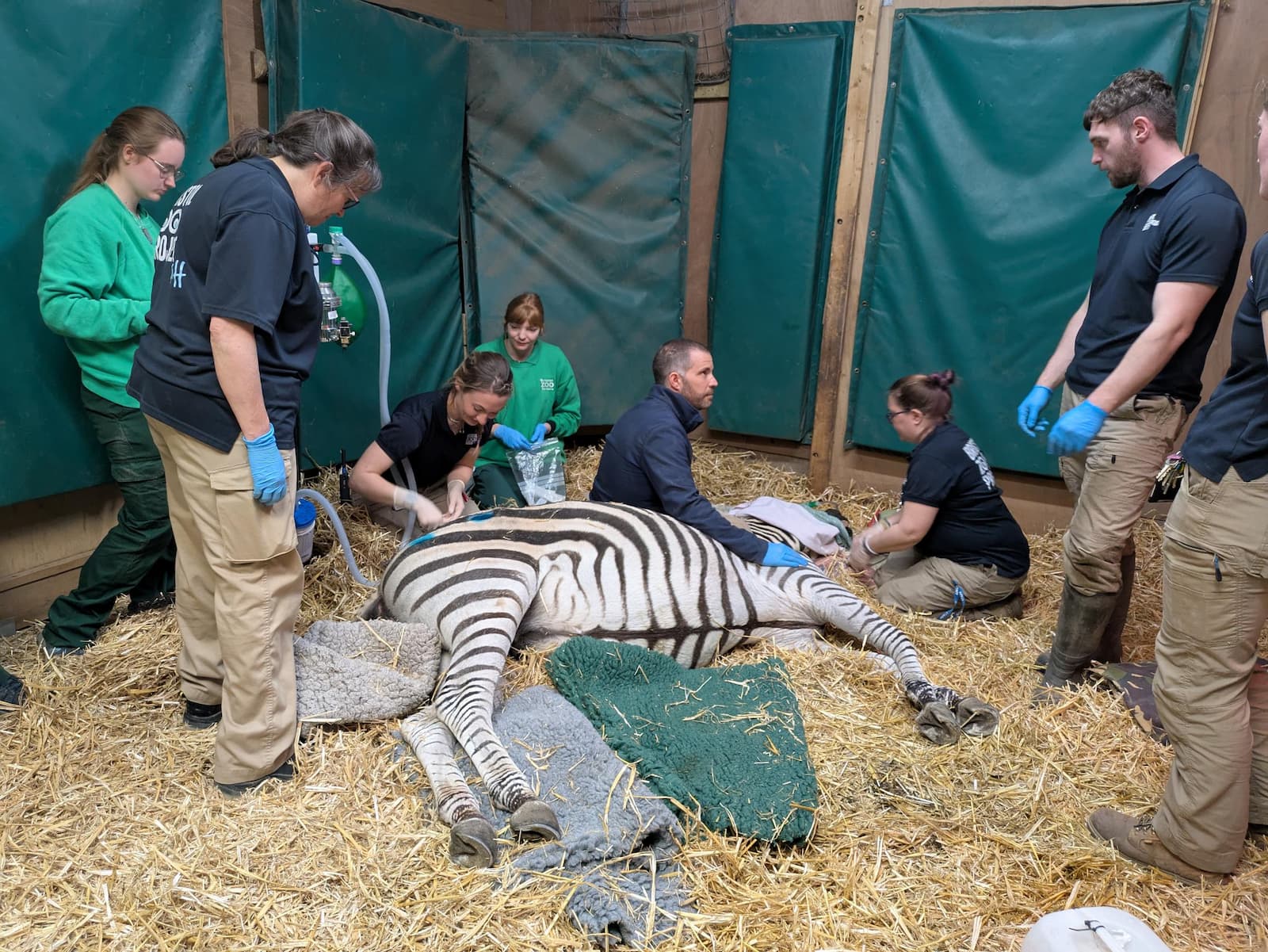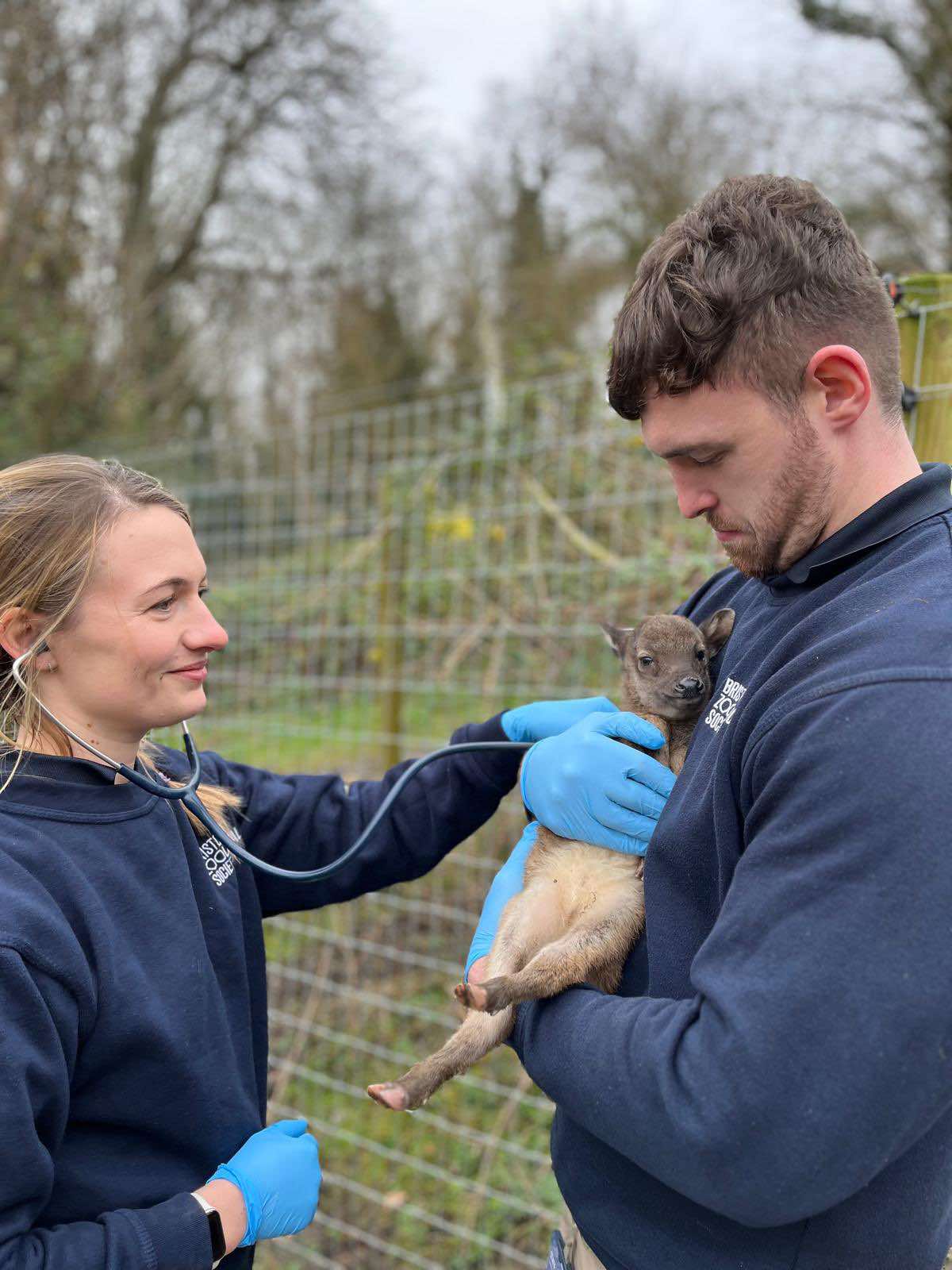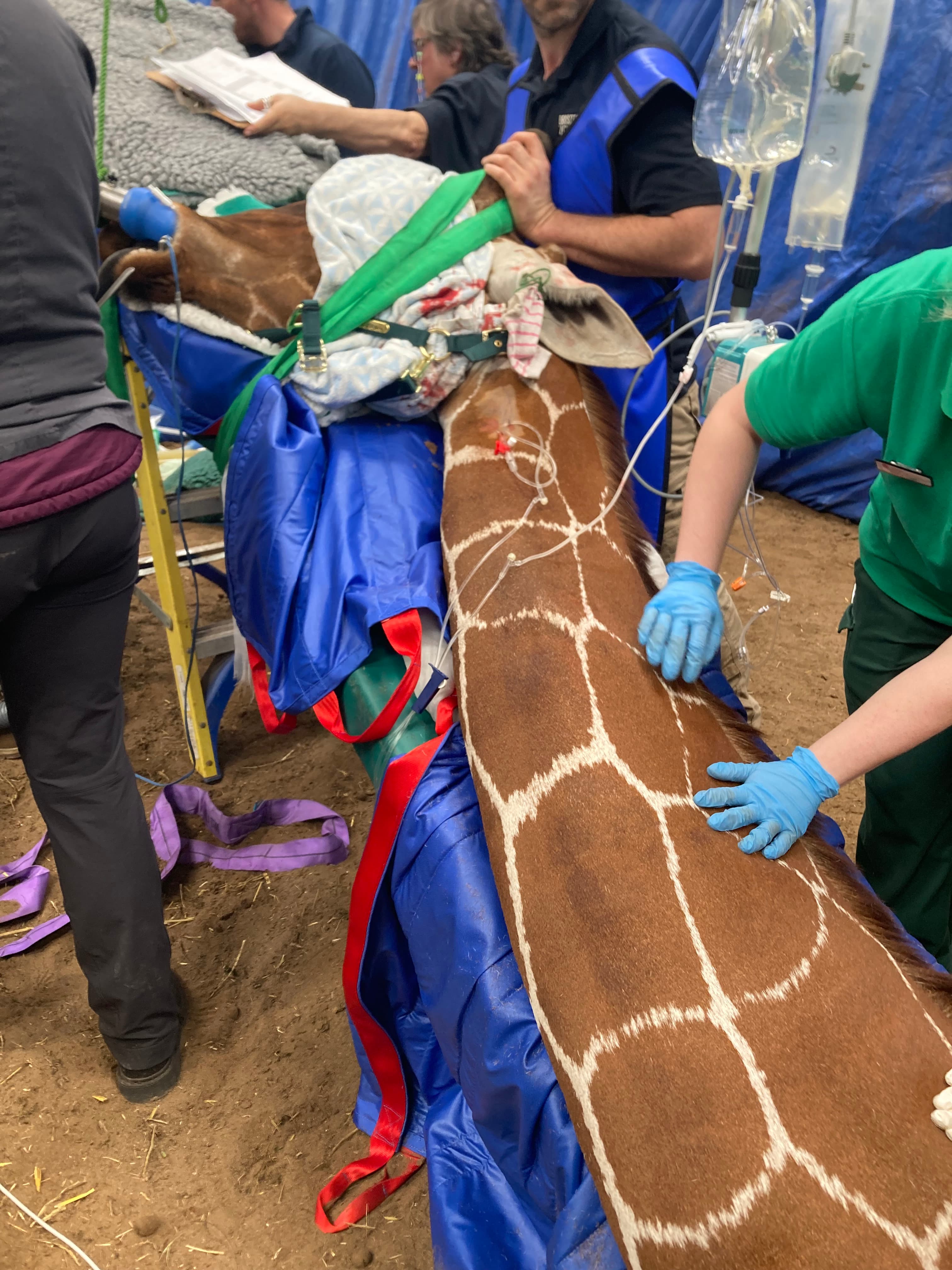
Celebrating World Veterinary Day!
Posted on: 26 April, 2025
Saturday 26 April 2025 marks World Veterinary Day, and we're celebrating the incredible vet team at Bristol Zoological Society!
Working at a zoo means that our vets work with a huge array of species, from tiny snails to towering giraffes. And as well as the hands-on work with animals, they also teach university students about animal health and welfare, and share their specialist knowledge at international vet conferences.
We caught up with Amy, one of our Staff Veterinarians, about all the amazing work the vet team has achieved in the past year.

What does your job involve at Bristol Zoo?
This has been my first year with Bristol Zoological Society. It’s exciting to be the third European College of Zoological Medicine (ECZM) resident in zoo health management at the zoo. We are one of only a very few zoos in the whole of Europe that have a Specialist in Zoo and Wildlife Medicine and are able to offer these residencies. The vets and vet nurses here are very experienced and have worked across the world in different zoos, so it’s amazing to work with such a knowledgeable team. The species that we examine or treat daily can be so varied, which keeps every day interesting.
The vets and vet nurses here are very experienced, and have worked across the world in different zoos, so it’s amazing to work with such a knowledgeable team. The species that we examine or treat daily can be so varied, which keeps every day interesting.
It’s been inspiring to see the number of different professionals that are willing to contribute to the health of our animals. We have worked with multiple specialist vets, including veterinary dentists and diagnostic imagers, equine farriers, international zoo farriers and even human gastroenterologists.
Alongside the daily veterinary care we provide, we also continually run two veterinary rotations for the University of Bristol, educating final year students about exotic pet medicine and zoo and wildlife health. The students are always so passionate to improve their understanding of zoological medicine and become advocates for animal welfare and conservation through the provision of veterinary care for all species.
The veterinary department also attend and present at international conferences, which has been a great opportunity to share knowledge with other specialised vets in the zoo world. Last year, we also hosted the British Veterinary Zoological Society conference for students, new graduate vets, and vet nurses at Bristol Zoo Project.

What’s the most interesting procedure you’ve been involved in?
In July, our silverback Western lowland gorilla, Jock, had a general anaesthetic for some dental work, full health examinations, blood work, and for a cardiac loop recorder to be placed in his chest.
Being so close to a 180kg silverback is quite surreal. There is always a great collaborative effort between the veterinary team and animal keeper staff when procedures like this happen and it wouldn’t have gone so smoothly without everybody’s effort.
What’s been the most unusual vet moment of the past year?
Zoo vets do a lot of import and export health checks, to ensure that all animals moving between zoos are meeting appropriate health standards. Sometimes these health checks can involve unusual species which you don’t get taught much about at university!
Recent checks have included a group of 50 pupfish eggs (Cyprinodon simus), new sunflower beetle grubs, and some white-clawed crayfish. The veterinary department here have a huge amount of knowledge across a wide range of species so it’s always rewarding to work with so many different taxa and share experiences.
What’s the smallest animal you’ve worked with, and what’s the biggest?
We are involved in a breeding and conservation project for the Critically Endangered Partula and Discular snail species, some of which weigh less than 0.1 grams! Which is going to be challenging if they ever need medication.
The largest animal we get the pleasure of working with at Bristol Zoo are our male reticulated giraffe, which can weigh over a tonne and be 18ft tall.

Which animal on the Bristol Zoological Society species plan are you most excited to work with in the future?
I’m most excited to work with the Eastern black rhinos. We haven’t had rhinos at Bristol Zoo in such a long time, and they are a critically endangered species. Training 800-1400kg animals for veterinary procedures is going to be a challenge, but our animal keepers are definitely up to the task.
Their training allows the veterinary team to be able to consciously perform many checks and procedures on our animals, including x-rays, blood samples from animals including bears, cheetahs and giraffe or examining the mouths of our gorillas in a stress-free manner.
What makes you proudest about your job?
Working at a conservation-led zoo is amazing. It feels that we make a difference to the animals we work with at the zoo and within conservation projects across the world.
Through our university teaching, the veterinary team are helping Bristol vet students to graduate with the knowledge and confidence to treat a much greater variety of species than just cats and dogs and our MSc students to gain valuable conservation knowledge and practical experience with a variety of species.
What’s the one thing you’d tell someone who’s looking to become a zoo vet?
It is worth the time and training to get there. Working as a team to improve the health of such a large variety of species from invertebrates, fish, reptiles, mammals and birds is always motivating. Bristol Zoo is a conservation-led charity which means that the work we do is contributing to conservation projects working to protect some of the world's most threatened species.

Want to help us save wildlife?
Become a member today for a year of wild adventure, and help protect the animals and habitats you love by supporting our conservation charity.

